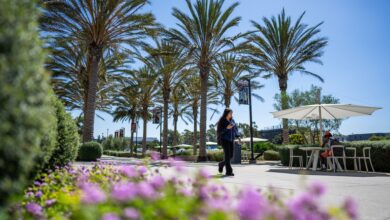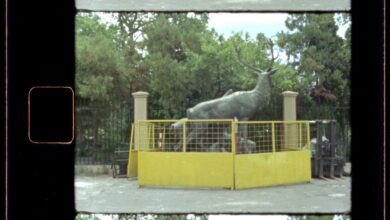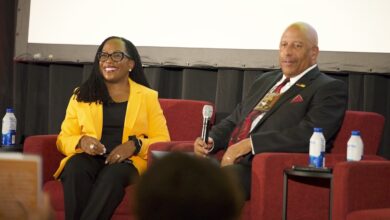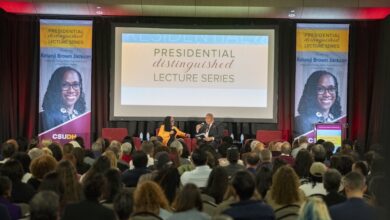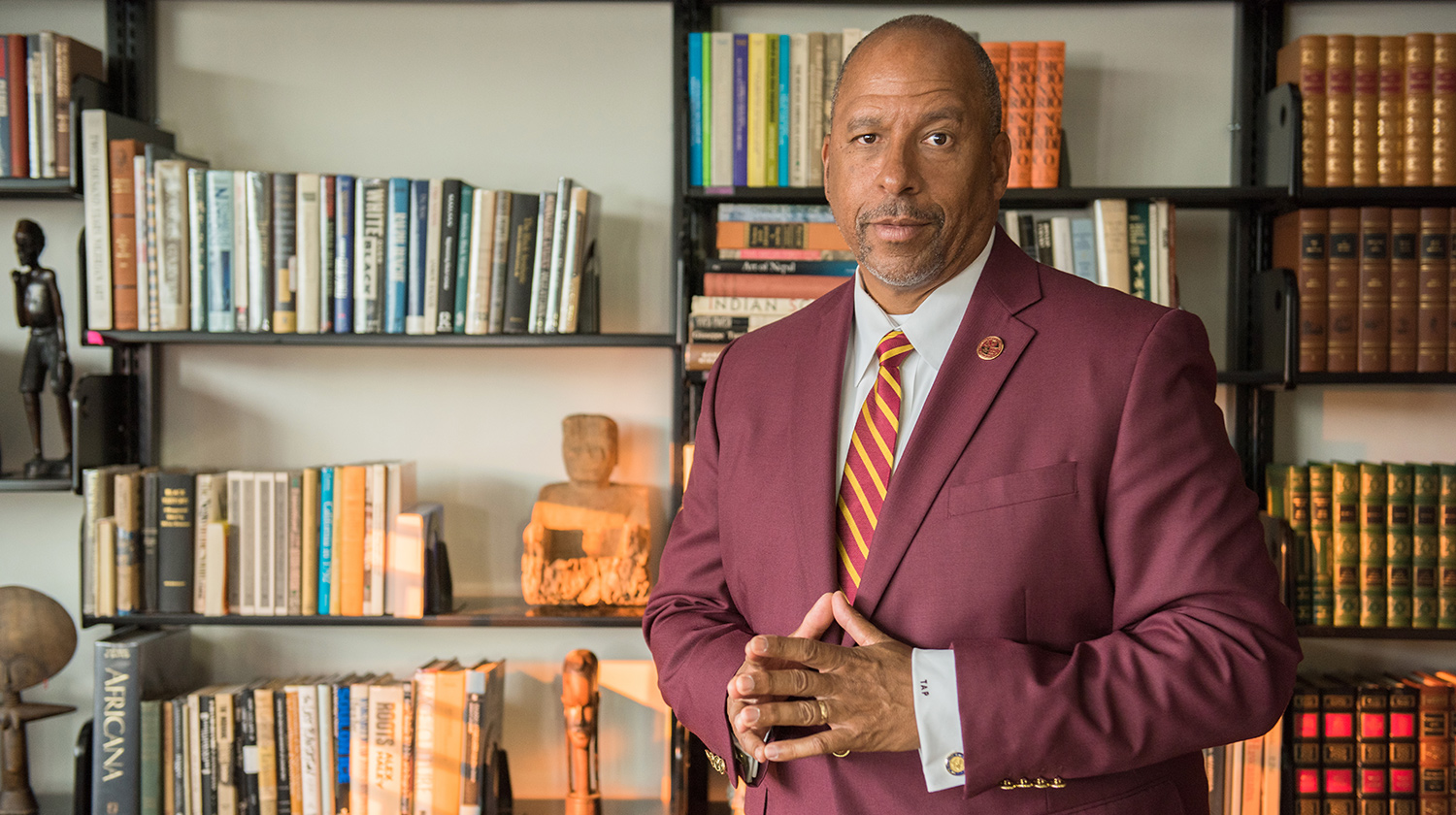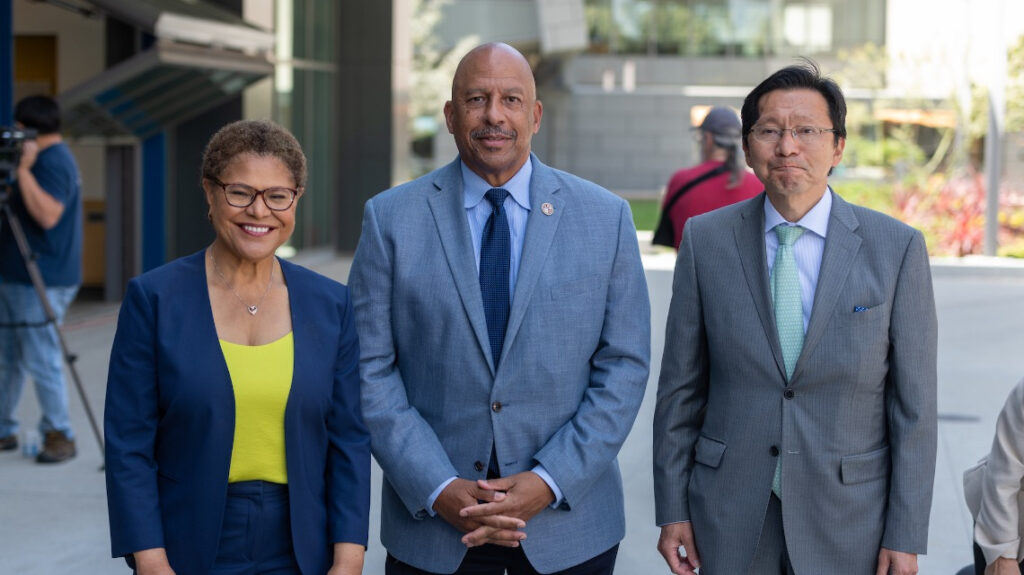
Source: Daily Breeze
When Karen Bass and Rex Richardson are sworn in as the mayors of Los Angeles and Long Beach, respectively, Cal State Dominguez Hills, near Carson, will have something particularly special to boast about:
Five alumni will serve as mayors in LA County.
Bass will soon make history as the first female mayor of America’s second-largest city and Richardson will pave the way as Long Beach’s first Black mayor.
They join the ranks of fellow alumni – affectionately known as the ‘Toros’ – Carson Mayor Lula Davis-Holmes, Hawthorne Mayor Alex Vargas and Compton Mayor Emma Sharif.
If that wasn’t impressive enough, the state senator and assemblymember for the districts that represent Carson also attended Dominguez Hills. Recently elected 62nd District Assemblymember Tina McKinnor took classes at CSUDH from 2005 to 2009, while 35th District Sen. Steven Bradford graduated with a bachelor’s degree in political science in 1985.
These collective achievements would be notable for any university – but are especially significant at CSUDH.
That’s partly because CSUDH is a public university and not an elite institution that only takes “top-tier” students. And all five CSUDH alumni who are or will become mayors are people of color who come from humble beginnings and worked their way up to where they are today.
“You now have seen the impact of making education affordable and accessible in our communities,” Richardson said in a recent interview, “because you have people who wanted to serve but they just needed access to the educational opportunities and the resources to make a difference.”
CSUDH, the mayor-elect added, “should be highlighted and lifted up as a national standard on quality community-based higher education.”
CSUDH accepts more than 80% of students and has a student body that is 87% people of color. Nearly 50% of the university’s population are first-generation college students.
“One of the things I’m proudest of is that we don’t judge our worth and merit based on our selectivity ratios,” said CSUDH President Thomas Parham. “We try to make sure that we are not simply replicating privilege, but see if we can provide the most access to students possible.”
A key benefit of Dominguez Hill’s access-focused admission policy is that it produces leaders from within their own communities, Parham said. And those leaders also have first-hand experience of the problems facing their constituents.
Davis-Holmes, for example, was a teen mother when she enrolled at CSUDH. She earned her bachelor’s degree in behavioral science and sociology in 1983, her master of public administration degree in 1992 – and spent 27 years working her way up the ranks in Carson.
“When I hear that something is wrong, I’ve already lived it,” she said recently. “I lived the good, the bad and the ugly because I live here and I came up from the bottom, from a volunteer teen mother all the way to the mayor of the city of Carson.”
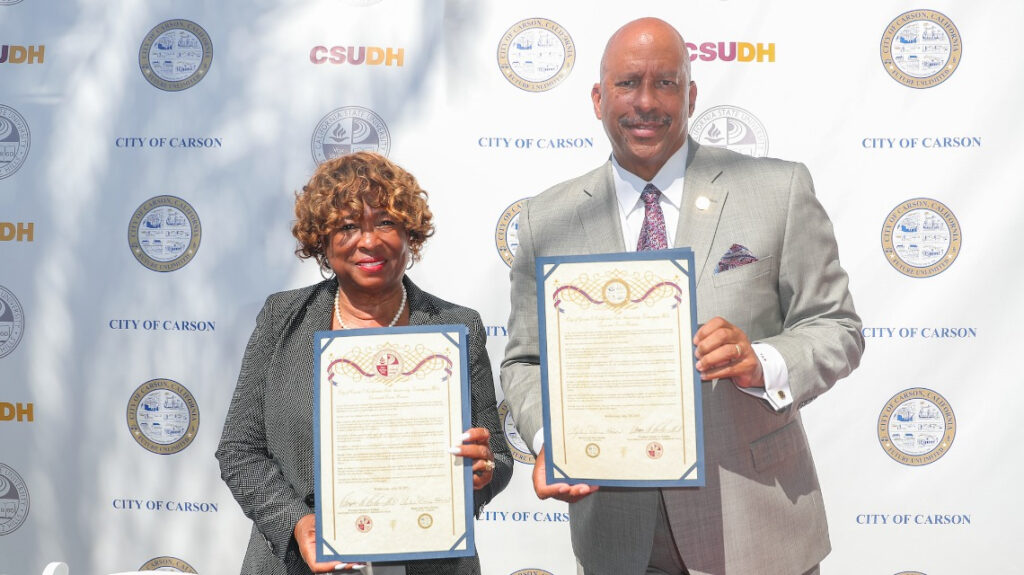
Davis-Holmes said that she loved the “family atmosphere” on campus and that the support, flexibility and understanding of her teachers was essential to her success.
“When I was struggling, I always knew I had a mentor on campus that would help me,” she said, “and knew that I was a mother, a wife, and understood my situation.”
Richardson also overcame hurdles to be where he is today. He grew up with divorced parents who experienced job and housing instability and, as a result, he attended 14 public schools across five states.
When he applied to CSUDH in 2001, his GPA didn’t meet the criteria for admission, Richardson said.
Nevertheless, the school put faith in him, by offering him admission through the Educational Opportunity Program – an initiative of the Cal State University system that admits underserved students under special circumstances, if they demonstrate a drive to succeed.
“Circumstances are places people come from,” Parham said, “but not who they are at the core of their being.”
CSUDH, he said, focuses on every student’s individual potential regardless of their background.
As a result, Parham added, the university tends to attract students who are committed to community mindedness and social justice.
Richardson is an example of this. He excelled at Dominguez Hills, becoming student body president, founding the Black Business Students Association, and working on state Assembly and Carson City Council campaigns.
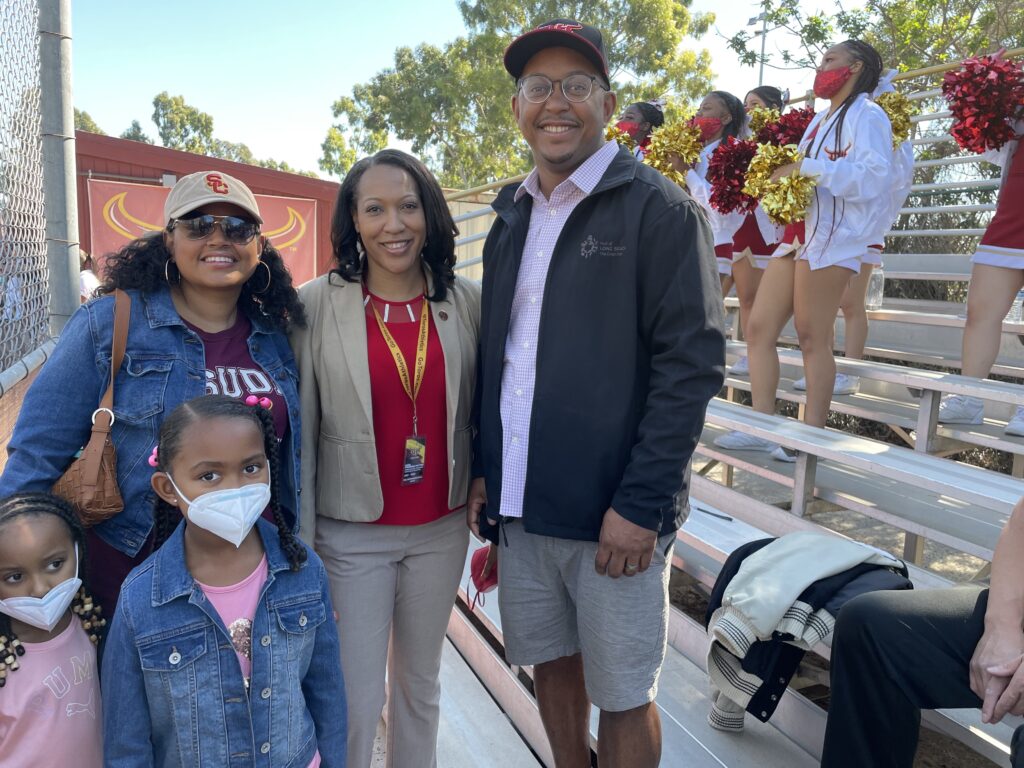
Those experiences, Richardson said, are what led him to become the youngest councilmember in Long Beach history and now the first Black mayor.
“That spark, for me, was ignited at Cal State Dominguez Hills,” Richardson said.
Civic and community engagement is a key part of the educational philosophy at CSUDH, not just for those studying political science, but also for students in all degree programs, Parham said.
This can be seen in the breadth of programs that the alumni mayors studied, he added. Bass, whose communications representatives were not able to provide a comment by deadline, received a bachelor’s degree in health science in 1990; Vargas received a bachelor’s degree in physics 1995; and Richardson, under the flexibility allowed by CSUDH, just recently completed the final coursework for his bachelor’s degree in 2020.
The university’s history is rooted the social justice movement.
The school first opened on the Palos Verdes Peninsula in 1965, but was quickly relocated to Carson in an attempt to open greater economic opportunity for residents of South Central Los Angeles following the Watts riots.
The school has proven highly successful in this mission and currently ranks second in the nation for producing economic mobility, according to public policy think tank Third Way. And because of the relatively low-cost of attending a CSU, students leave the university without being saddled with debt.
The social-justice focus, meanwhile, continues permeating into classrooms today, Parham said.
“Some (students) in business might say, ‘Let me go banking because I need to create more economic empowerment and not just enrich my own coffers,’” Parham said. “Someone may go into health care because, you know, health services will allow our people to get what ought to be a right rather than a privilege.”
Another commonality across all programs is a deep community connection as students work on service projects and participate in internships and apprenticeships with local companies.
Around 60% of CSUDH graduates live within a 25-mile radius of campus. The school is also a top producer of teachers for the Los Angeles Unified School District.
“Not only do we have people who come from the communities that we serve,” Parham said, “but we have a campus that is committed to being engaged in the community.”
Going forward, Parham said, he hopes that the impressive student outcomes at CSUDH help lead to a change in how America ranks universities – by focusing on the number of lives these institutions transform instead of the exclusivity of their admissions.
He is also looking forward to seeing the continued work of CSUDH alumni as mayors and state representatives.
“These policymakers, these public servants, who are committed to making their communities better, I love the fact that their dreams and aspirations were nurtured in the soil that represents CSUDH,” Parham said. “I think that’s a feather in the cap not only for Dominguez Hills, but more broadly for the California State University system as a whole, that is committed to doing that kind of transformative work.”

